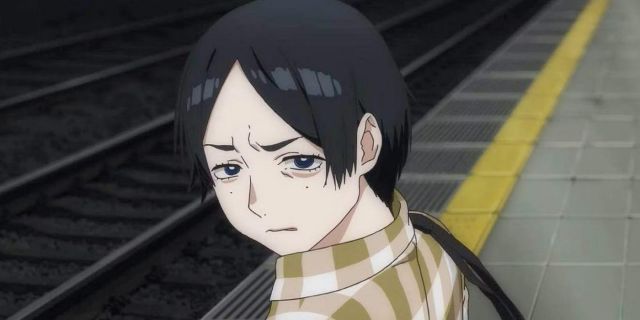The following contains spoilers for Blue Period Volume 10 by Tsubasa Yamaguchi, now available in English through Kodansha Comics.
Blue Period is known for its immersive look at the world of fine art, but it has another pull for fans. Just like how paint blends together on a canvas, creator Tsubasa Yamaguchi often blends multiple themes with the characters’ struggles in art. The manga’s early chapters (and the anime) cover Yuka’s toxic family and struggle to pursue their dreams at the same time. These issues are overcome similarly, with a combination of art and soul-searching beside Yatora. As the manga continues, this trick of Yamaguchi’s only grows stronger.
As Yatora and crew’s first year at college comes to a close, he and others are exploring their relationships with art. Yatora questions if he even likes art after a brutal year of creating, and poses the same question to his long-standing rival. Yotasuke is introduced as the typical aloof genius who doesn’t have to put much effort into his work. Ever since blew everyone else’s art out of the water on his first try, Yotasuke’s been set up as a pillar for Yatora to aspire to. However, Volume 10 has given Yotasuke a much-needed spotlight, revealing that the life of a prodigy isn’t as rosy as Yatora thinks. In fact, readers may wonder who is better off between the two of them.
Blue Period Vol. 10 Reveals Yotasuke’s Inner Struggles

Opening right where Volume 9 of Blue Period left off — with Yatora’s burning question, “Do you like to make art?” — Yotasuke’s pedestal crumbles in Volume 10. He admits he’s never once thought that he enjoyed art, and throws the question right back. This comes as a shock to Yatora, who can’t fathom why someone so good at something could hate it. The reader, however, has been drip-fed some possible reasons.
Yotasuke has always been critical of art education, even quitting cram school because he refused to make pieces that would only please a college admission team. Now that he’s in college, his professors’ expectations are crushing him. Like Yatora, he’s upset that he keeps getting the wrong answer in a subject that’s supposed to have infinite viewpoints, but it’s for a different reason.
Despite what one may think, being a child prodigy doesn’t always guarantee a successful adult life. In fact, many find themselves on par with their peers by the time they reach adulthood. Former gifted kids are often adults with anxiety or depression, or set impossibly high standards for themselves. Other symptoms include physical or mental fatigue and emotional detachment — both of which fit Yotasuke well, especially in Volume 10. While he has never been particularly social, Yotasuke is shown in isolation more than ever before. He looks exhausted, and that only changes after he finally breaks.
Yotasuke’s Mother Is the Primary Source of His Struggles

That said, Yotasuke’s problems don’t stem from his teachers or even his peers; the source of it all is his own mother. The woman has enshrined her son’s childhood art in the family home in a place it can never be ignored: the front entrance. She goes on about how Yotasuke’s only good quality is his art, implying he’d be nothing without it. Ever since he was a toddler, she’s seen him as nothing more than her little artist. Now that he’s an adult, he’s struggling to do the one thing he’s good at for the first time, and he can’t cope.
Pressure is ultimately what breaks the majority of burnt-out gifted kids. Whether it’s from parents, teachers or peers, intentional or not, so many wind up breaking under it all. It appears Yotasuke has joined them, but Volume 10 ends on a hopeful note. After gallivanting around Shibuya with Yatora, he stops trying so hard to meet expectations. Yotasuke paints a piece that he wanted to make, and defends himself when it’s criticized relentlessly. He says, “Even if I have the right to amount to something, I’m not obligated to do so,” and he’s right. He may not be what others want him to be, but he’s still capable of being a creator.
Just like most other difficult themes Blue Period covers, it does so with bittersweet vibes in Volume 10. A person’s life or art may not be perfect, but their value is still evident.















Leave a Reply